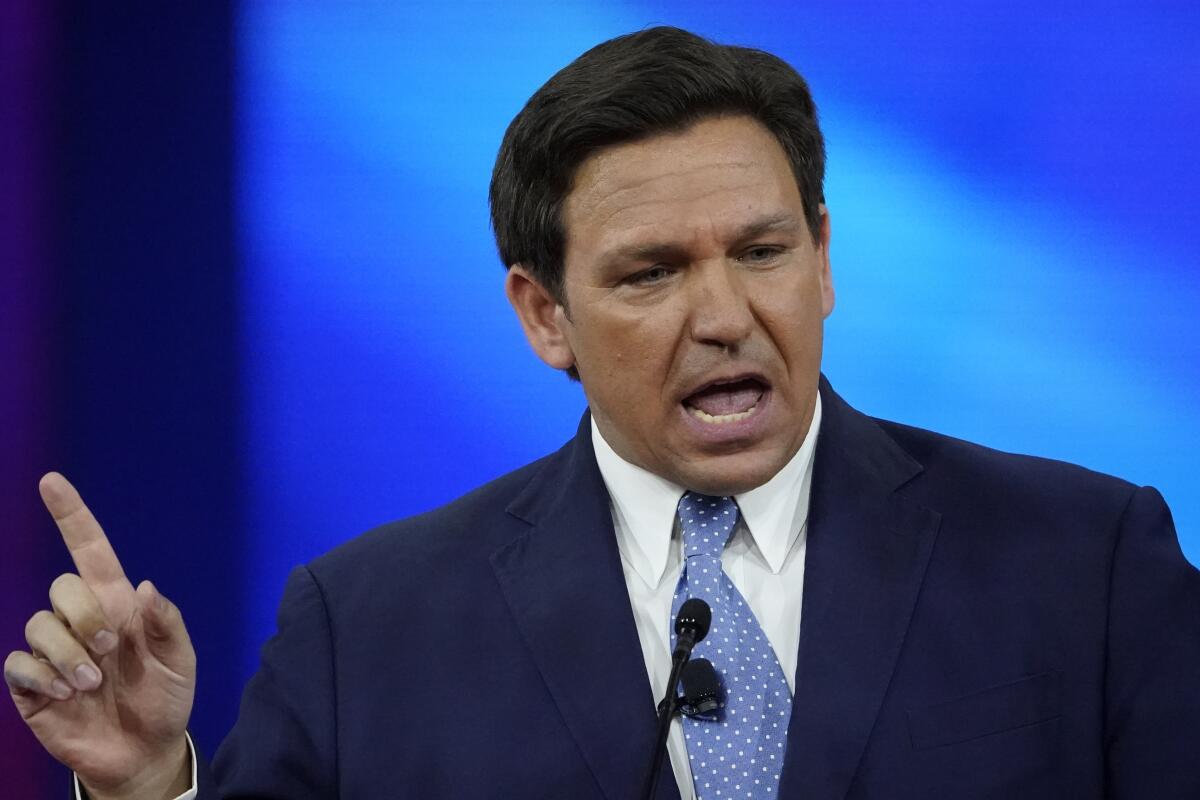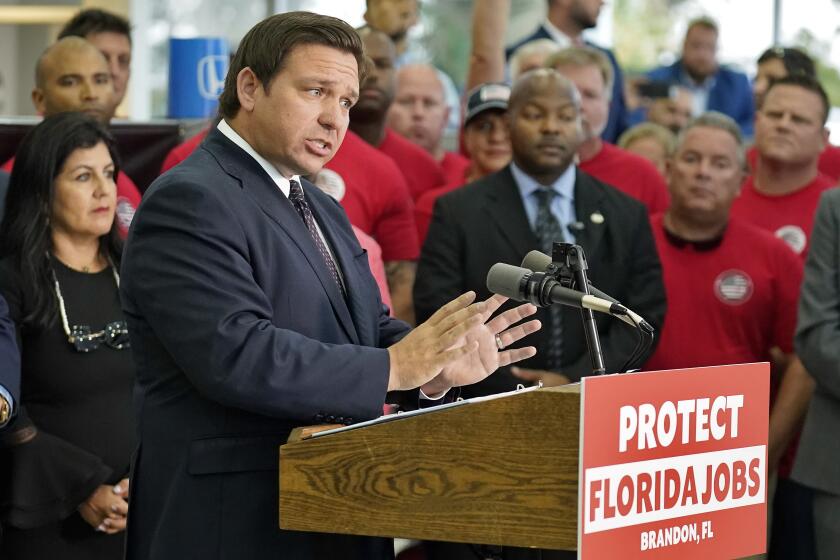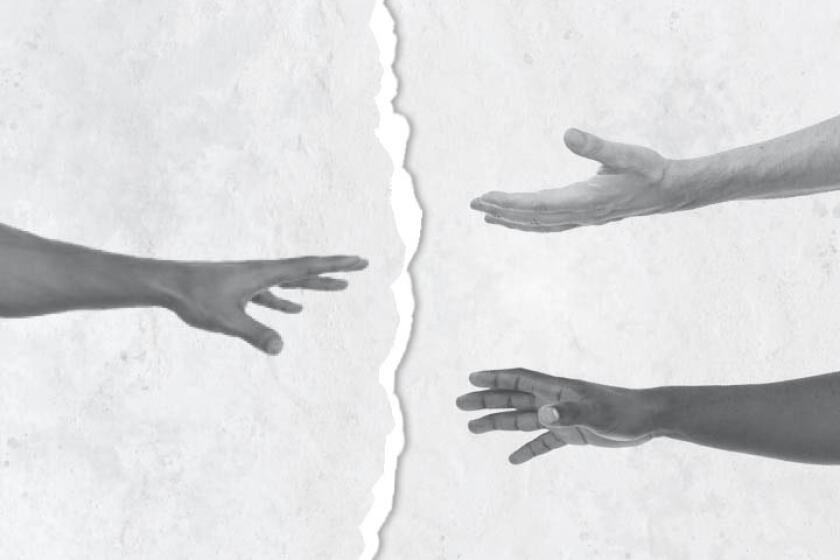Florida sets up a witch hunt for liberal professors

- Share via
College isn’t what it used to be, that’s for sure. Compared with a decade or two ago, it’s way more expensive and students are shunning liberal arts in favor of majors with more immediate and obvious relevance to jobs such as engineering or environmental science. And although long-ignored voices of people of color are finally more likely to be heard, college is overall less welcoming to widely differing opinions and raucous but respectful debate from various points along the political and social spectrum.
In recent years — especially during the Trump administration — sizable numbers of students began expressing an inability to cope with opinions they found objectionable. Feeling discomfited evolved into feeling threatened, and some student groups tried to stop speeches by provocative voices with which they disagree. There have been increasing complaints of self-censorship — students keeping silent because they’re afraid their opinions will be attacked, put down by professors or even subject them to retaliation on social media.
A new law in Florida, pushed through by Gov. Ron DeSantis, is likely to make the academic climate even less inviting. Though it would purportedly make campuses more open to a diversity of opinion, the law is likely to be used primarily as a tool for hunting down liberal professors, encouraging lawsuits and discouraging true freedom of expression.
The Special Olympics capitulated to Florida Gov. Ron DeSantis, dropping a vaccine mandate in hopes of escaping a $27.5-million fine.
It is true that many students — not just conservatives, by the way — keep their thoughts to themselves for fear of backlash. A 2021 survey of 37,000 college students found that 80% said they self-censor at least some of the time, and 21% often. Nearly a fourth of the students said it was acceptable to stop a troubling campus speech with violence.
It wasn’t a random poll, but rather conducted through a surveying app that invited students and offered rewards, so it might not fully reflect the situation on campus. Still, the numbers indicate a troubling trend. And a 2020 survey by the same organization found that although conservative students were the most likely to report holding their comments, Black students also frequently self-censored.
For the most part, though, this doesn’t seem to be a problem promulgated by wild-eyed progressive professors making students feel stupid or disrespected for having a different point of view. A 2020 poll by UCLA found that at least 80% of students from every part of the political spectrum felt their colleges encouraged them to share their ideas openly. They were much less satisfied with the campus “atmosphere for the expression of diverse beliefs.”
In other words, this is more a social problem among peers than an indoctrination attempt by schools, which have generally been defending freedom of speech and diversity of opinion.
College students grapple with a question medieval theologians faced: Is repentance necessary before forgiveness is granted, or is mercy unconditional?
At the University of Virginia this spring, for instance, a student group invited former Vice President Mike Pence to speak on campus. An editorial in a student newspaper said Pence threatened the lives of vulnerable people on campus and didn’t deserve a platform. The school should cancel his speech, it said, but the university held its ground. In the end, Pence’s speech went off without a hitch. In other words, things happened as they should. The university stood behind diversity of opinion, as universities have been doing across the nation.
Far from making people with dissenting views feel comfortable on campus, the new Florida law threatens to turn universities into spy-and-sue zones based on speech. It would require annual surveys of students to check on “intellectual freedom and viewpoint diversity.” A survey to determine whether students find their schools or instructors are repressing open discussion might sound reasonable. But what if the survey finds that most opinions on campus are liberal? Has the school somehow flunked the “viewpoint diversity” test? Schools shouldn’t need a set percentage of conservative students or any other particular political group. What schools need are procedures for informing students about the right to free speech and the necessity of tolerating varied viewpoints while arguing the issues in civil ways. Most colleges already have this.
Beyond that, the law gives students the right to videotape their classes to catch any professors in the act of — what? Expressing an opinion they don’t like? And it would provide the right to sue if there were some kind of perceived discrimination against their beliefs.
This is certain to create a new era of self-censorship in which neither professors nor students feel safe speaking their minds.
DeSantis isn’t wrong to say that there have been new attacks on speech on campus, but that’s largely among peers. Any attempt by colleges to intervene would in fact be a repression of speech. In fact, the latest and worst attack on freedom of expression on campus is this law.
More to Read
A cure for the common opinion
Get thought-provoking perspectives with our weekly newsletter.
You may occasionally receive promotional content from the Los Angeles Times.











